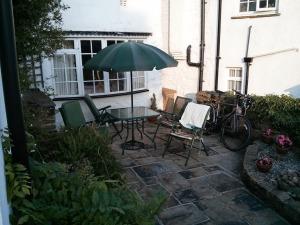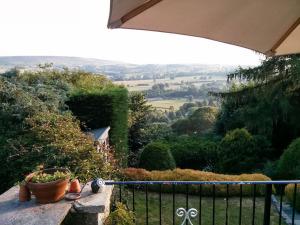Wednesday, Thursday, and the Slow Death of the Present Tense
I have always felt that the most powerful guiding force of my life is irony. No surprises, then, that this holiday, the first in years when I have not felt exhausted and have been looking forward to pottering about on my own, it is simply too roasting hot to do anything. Aha, you may say, this is why we bring large crates of books on holiday with us, is it not? Not to mention ambitious plans for getting lots of writing done.
Well, I had pretty much done all I could with Henry by Wednesday morning. I’m not someone who fiddles endlessly with my prose; I do know when I’ve reached the point where it just has to sit for a while before I can assess it again. When I know there’s editing to be done, however, I’m like a woman possessed. Hunger, thirst, neither of these is a patch on the potent impulse to rewrite the same sentence five different ways.
On Monday evening towards 11 o’clock I had reluctantly begun shutting the word program down, not least because I couldn’t see through my contact lenses any more. ‘Darling,’ I said to the laptop, as you do, ‘I hate to leave you, but I promise I will be back first thing tomorrow morning to get you all nice and fixed.’ Imagine my surprise, then, when the laptop answered me back. ‘Mummy, why are you abandoning me?’ it said. ‘Why not stay and fix me right now?’ I turned around to see my dear husband grinning at me. That rascally Mr Litlove! Way to mess with your wife’s head!
Anyway, back to books. I’d finished the John Dunning (not good) and The Woman Upstairs by Claire Messud (interesting – review to come) and so I pick up the next two books on my list. These are The Mirador, the ‘imagined’ memoir of Irène Némirovsky written by her daughter, and Bill Bryson’s Notes From A Small Island (for my book club).

Our sheltered terrace
The Mirador begins well. It is written as if by Némirovsky, a first person account from her youngest childhood days and the description of Russia at the start of the 20th century is amazing, so lush and rich. Each chapter break is accompanied by no more than a paragraph in italics, telling the third person account of the moment in WW2 when Némirovsky was deported and her two daughters left to make a desperate escape from the Nazis. It should be good, as it’s well written and a fascinating concept. But there is no dialogue, nothing to break the rhythm of those long, intricate sentences, and in no time at all I find myself waking up from an impromptu nap. I see it’s going to be one of those books – a more reliable soporific than valium.
Notes From A Small Island seems a much better bet for keeping me conscious and entertained. It begins hilariously, with a young Bryson pitching up at a snooty B & B in 1970s Dover where the landlady reels off an impossibly long series of rules and regulations, all destined to preserve her furnishings in a way that makes it almost impossible actually to use them. And it follows this up with excellent anecdotes about his time as a carer in a mental hospital in Virginia Waters (where he met his wife) and his early days in journalism in London. Bryson, it turns out, has decided to move back to the States and is taking a valedictory tour of the UK before he goes. I annoy Mr Litlove by laughing immoderately. But then Bryson runs out of personal reminiscences and starts complaining about architecture. Not that his complaints aren’t valid but they’re not particularly funny. The book goes off the boil.

The view from the terrace
I am then saved by the owner of our cottage (who lives next door). I had commented on a thriller she’d been reading the previous day and she now drops it round in case I’d like to read it. Ah, delightful trash! The novel is called Criminal by Karin Slaughter and whilst it’s pretty good trash, it’s also quite the most disturbing book I think I’ve ever read. I plow on womanfully, determined to finish it before the end of the holiday.
We also watch a lot of films this holiday, which is strange for me because I watch them so rarely. Initially we don’t have a lot of luck there, either. A Dangerous Method, about Jung’s alleged affair with his patient, Sabina Spielrein, which Mr Litlove had optimistically been calling ‘the spanking movie’ turns out to be oddly dry and dull. When I first heard about it, I’d been intrigued by the premise – I’m always interested in anything to do with psychoanalysis – but feared a vulgar Hollywood-ising of the material. I can honestly say this is not the case! We sat through it politely waiting for the end. Then we watched Houseboat, a Cary Grant comedy. Generally I love Cary Grant, but this one has a storyline of such implausibility that even I could not suspend disbelief. And what had they done to Sophia Loren? I’ve never seen her such a strange color.
Next we tried our luck with The Lady Vanishes, classic Hitchcock. It started okay, but was another film that got more and more bizarre as it went along. I was beginning to wonder whether it was us, so we watched two movies we’d seen before – the excellent Crimes and Misdemeanours from Woody Allen’s best years, and the first of the new Sherlock Holmes films with Robert Downey Junior. Nothing whatsoever to do with Sherlock Holmes, of course, but a fun adventure movie, and Jude Law is wonderful as Dr Watson. If only Jude Law stayed out of the celebrity magazines and just acted! And then finally on our last night we watched something new to us and good: The Artist. I’d already read two novels with similar plots this year, so clearly that old Hollywood thing is enjoying a commercial heyday, but it was charming, and really nice to see a film that made the most of its actors.
And then we went home. Where I was reunited with my full book collection and the indescribable bliss of my own bed. Going away is nice, but nothing is nicer than coming home.
